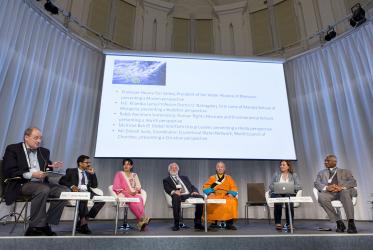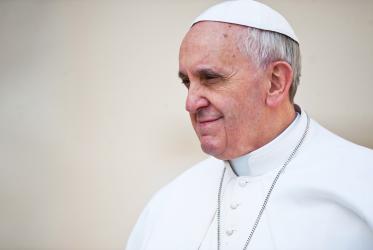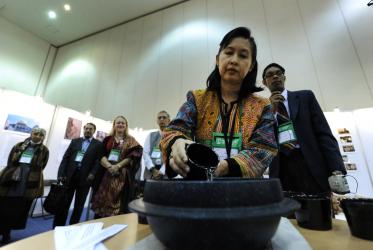Displaying 1 - 15 of 15
Rethinking Ecological Relationships in the Anthropocene era
11 - 13 February 2021
WCC represented at G20 Interfaith forum in Tokyo
13 June 2019
WCC leader offers Steve de Gruchy Memorial Lecture
24 April 2018
Catholic-WCC group pursues new mandate
13 April 2016
Religious leaders highlight significance of water at WCC assembly
04 November 2013











